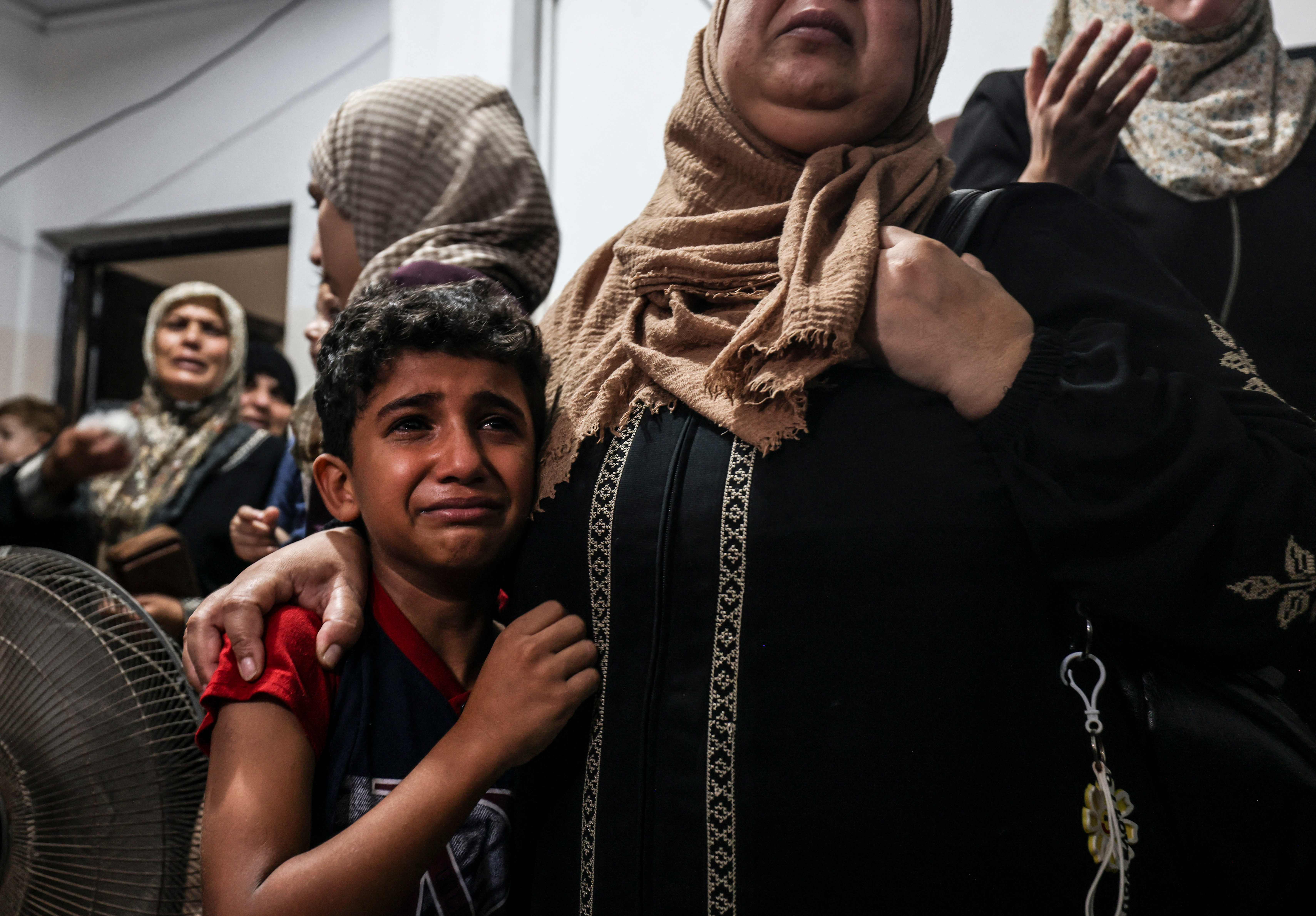Children are dying in Gaza – an internationally-supported peace deal is overdue
There has to be a real solution to this humanitarian catastrophe and the never-ending conveyor belt of violence, writes Bel Trew


Gaza is being bombed and Palestinian children are being killed again. Palestinian militants are firing volleys of rockets at Israel again. And like last May, those indiscriminate rockets have travelled as far as Jerusalem.
There is a sickening familiarity to violence that has erupted over the last few days between the Israeli military and militants – specifically Palestinian Islamic Jihad – over the tiny blockaded crumbling strip.
This round of conflict has killed six Palestinian children. Israel also closed goods and fuel crossings into Gaza on Tuesday, and so the power supply has been on for just a few hours, putting water, sanitation and medical facilities at risk. The blockaded strip, which is home to over two million people despite being just 25 miles long, is already extremely fragile. The impact of this surge of violence will be huge.
And this is why there must be not only an immediate ceasefire – which usually only lasts until the next flare-up – but a proper, comprehensive, internationally supported peace deal that puts an end once and for all to this horrific and unrelenting cycle of violence.
Just last May, there was an 11-day war between the ruling Hamas militant group and the Israeli military which left more than 200 Palestinians and a dozen people in Israel dead, following wars in 2014 and 2012.
In the interim, there have been volleys of fire on both sides which have also seen bloodshed, misery, and intermittently tighter restrictions by Israel on Gaza. This has taken the heaviest toll on Palestinian children there. In June, Save the Children found that half of all children in Gaza have contemplated suicide, and more than half are self-harming after trying to live under fire, as well as a 15-year-long Israeli and Egyptian blockade (imposed when Hamas, a designated terrorist group, violently seized control of the Strip).
And now the fresh wave of airstrikes are piling on more pressure. Israeli began “Operation Breaking Dawn” on Friday, launching what it called pre-emptive strikes against what it said was an anticipated Islamic Jihad attack meant to avenge the arrest of a leader of the group in the occupied West Bank.
The Israeli military has said their airstrikes are targeting military infrastructure and that they have killed two senior Islamic Jihad commanders. But the health ministry in Gaza says Israeli airstrikes have killed 31 people, including six children and four women, one of them elderly. A further 275 people have been wounded.
Israel has rejected that it is responsible for all the deaths of children in Gaza, claiming errant rocket fire was to blame in some circumstances, including one incident in the Jabaliya refugee camp in northern Gaza, in which six Palestinians were killed Saturday. The Independent was not able to verify that.
Israeli airstrikes on Gaza have been met with retaliatory rocket fire by the PIJ, including long-range rockets which were shot down by Israel’s powerful Iron Dome system over Jerusalem.
So far, no one in Israel has been killed by the inherently indiscriminate missiles. Israel’s Magen David Adom, its national emergency medical and ambulance service, says they have treated 21 patients, with minor injuries.
To keep up to speed with all the latest opinions and comment, sign up to our free weekly Voices Dispatches newsletter by clicking here
Meanwhile in Gaza, pressure is being exerted on an area which is already on its knees. Israel closed the Erez civilian crossing and Kerem Shalom commercial crossing on Tuesday, stopping the entry and exit of people and goods including fuel. This has meant that Gaza’s sole power plant was forced to cease operation on Saturday. This poses a major threat to Gaza’s water, sanitation and medical services, which is a potential humanitarian disaster.
The Norwegian Refugee Council estimates that the electricity supply in Gaza is expected to be on for only four hours per day and has called on Israel to immediately allow the flow of fuel and other goods into Gaza. Hopefully, a condition of an inevitable ceasefire will be that.
As in previous wars and conflicts, Egypt has stepped in brokering a truce, which is expected to begin this evening, according to Egyptian security sources and a Palestinian official speaking to Reuters. But even if the truce holds – and the crossings are opened again – the damage has been done. And there is again no guarantee there won’t be another wave of violence and yet more civilians killed.
There has to be a comprehensive solution to the humanitarian catastrophe that is Gaza and this never-ending conveyor belt of violence that is destroying a generation of young people, before it is too late.






Join our commenting forum
Join thought-provoking conversations, follow other Independent readers and see their replies
Comments